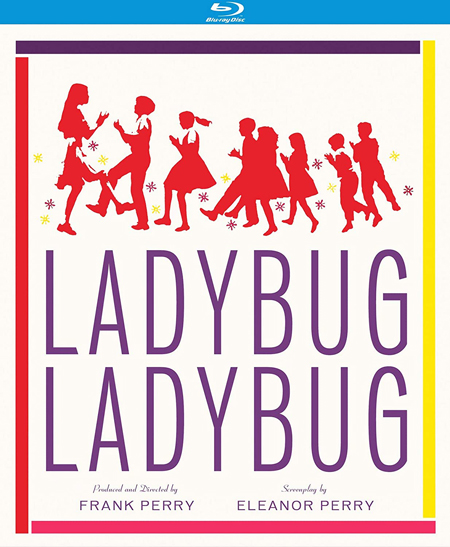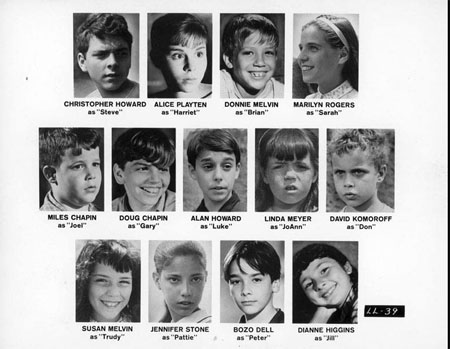
“WAR
GAMESâ€
By
Raymond Benson
Frank
Perry was a notable director and screenwriter who in the early part of his
career made some acclaimed motion pictures—David and Lisa (1962), The
Swimmer (1968), Last Summer (1969), and Diary of a Mad Housewife (1970).
Unfortunately, his later career was marked by problems (he directed the
much-maligned Mommie Dearest in 1981, for example). The earlier films
were written by or co-written with his then-wife and talented scribe, Eleanor
Perry.
Ladybug
Ladybug (1963)
was the follow-up to his beloved David and Lisa, for which Perry was
nominated for the Oscar Best Director. It is a treatise on the prospect of
nuclear war, made at a time when such a thing was on everyone’s mind. Released
just a year after the Cuban Missile Crisis, and a year prior to Stanely Kubrick’s
Dr. Strangelove and Sidney
Lumet’s Fail Safe, Ladybug examines the confusion and
miscommunication that could occur in a small American town if, by chance, the
early warning system either fails or misfunctions. Eleanor Perry wrote the
script, based on a short story by Lois Dickert (which allegedly is based on
true events).
The
film is notable mostly by the appearance of actors who would go on to bigger
and better things—Nancy Marchand, William Daniels, Estelle Parsons, and others
you might recognize as reliable supporting players. It’s a low-budget, black
and white affair that immediately recalls the style and sensibility of Perry’s
previous David and Lisa.
One
morning at the local school (is it a middle-school?—the kids all seem to be in
grades ranging from, say, third to eighth), the early warning system beeps
Yellow and won’t stop. This indicates that a nuclear strike is imminently within
an hour. The principal, Mr. Calkins (Daniels), isn’t sure what to do. He can’t
reach anyone to confirm whether the alarm is a mistake, a drill, or what…
Finally, he makes the decision to send all the students’ home, accompanied by
the teachers, who each walk an assigned group of kids to their nearby rural
dwellings. The story focuses on Mrs. Andrews (Marchand) and her charges. As the
children break off at their various domiciles along the way, one final group of
kids go to the home of Harriet (Alice Playten). Harriet’s parents aren’t there,
so the girl leads her classmates into a bomb shelter, where she takes charge,
evokes “rules,†and refuses to let anyone in or out of the shelter. The
situation is left ambiguous—is there an imminent strike or not?

What
we are left with is a sober meditation on the absurdity of how we all
planned—or not—for these events back in those “duck and cover†days of the
early 1960s. The message is clearly anti-nuke, and the drama comes from the Lord
of the Flies ambiance that swells among the kids in the shelter. I’m sure
that in 1963, this was potent stuff. Today, it’s a relic of a time and place
that resides in Baby Boomers’ collective memories.
Kino
Lorber’s Blu-ray release looks sharp and crisp in its glorious black and white.
There is an audio commentary by film historian Richard Harland Smith, as well
as subtitles for the hearing impaired. The theatrical teaser for this and other
Kino Lorber releases are also included.
For
fans of Hollywood “message†pictures of the 1960s, Ladybug Ladybug showcases
a young director at the beginning of a checkered career and an ensemble of
talented actors.
CLICK HERE TO ORDER FROM AMAZON
